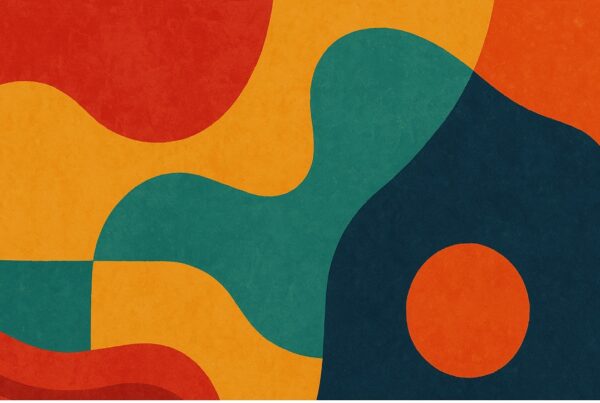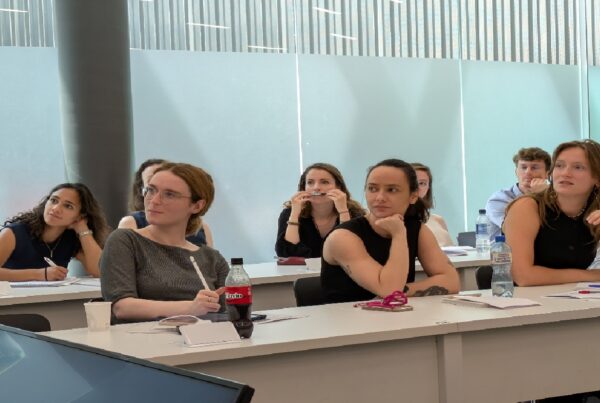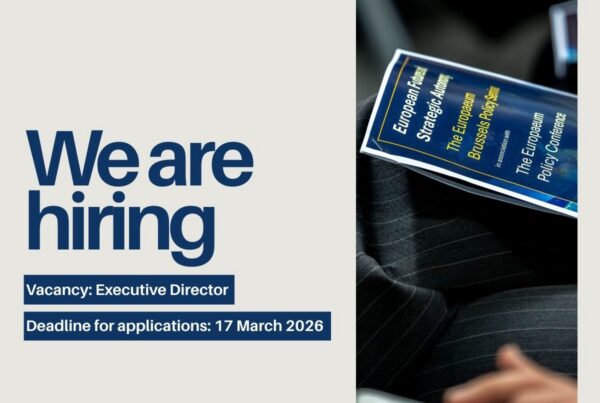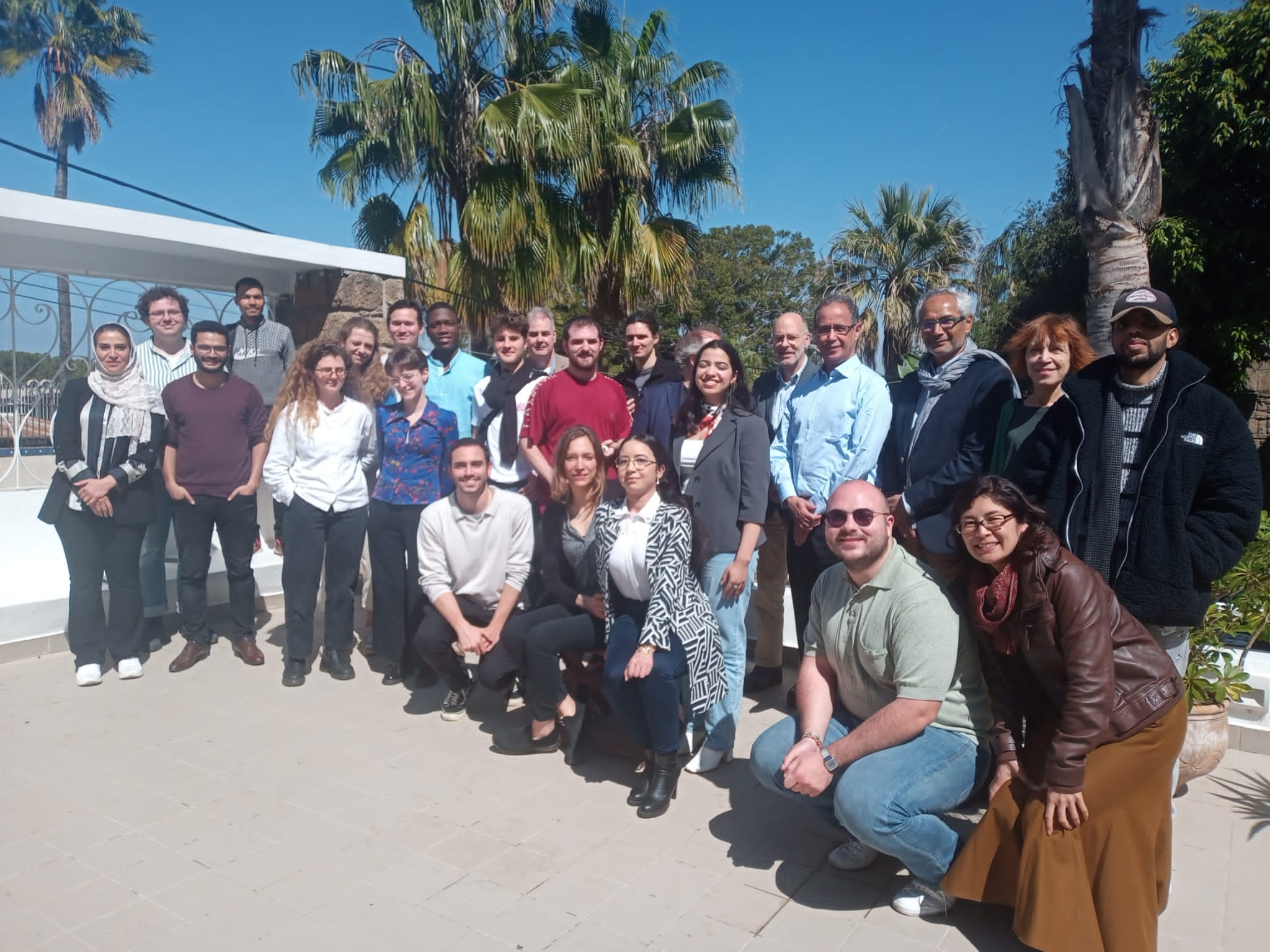
A Summary of the Event and Some Highlights to Remember
8-10 March 2023 | Nederlands Instituut Morokko, Rabat, Morocco
The Rabat Winter School, ‘The Maghreb Between Africa and Europe’, a partnership with the Netherlands Institute in Morocco (NIMAR) and the African Studies Centre, University of Leiden, brought together 25 students from across our network, including the very first participant (Rim Affathe) from our new member, Central European University. They were joined by local students from Université Mohammed V, and scholars from Europe and Africa. For three days in Rabat’s gentle spring sunshine we enjoyed intense discussion, thought provoking debate, and outstanding hospitality from NIMAR, our hosts. We were also welcomed by H.E. Jeroen Roodenburg, Ambassador of the Netherlands in Morocco, as well as Dr Farid El Bacha, the President and Dr Jamil Edine El Hani, Dean of Arts and Humanities at Université Mohammed V.
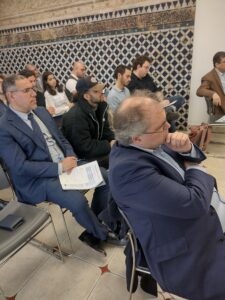
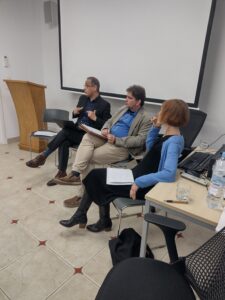
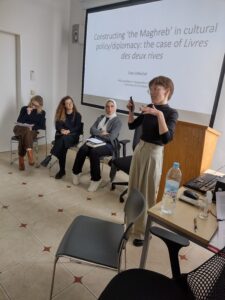
Day one, which coincided with International Women’s Day, focused on concepts of diversity in Morocco and of the Maghreb itself, with the accent on a plurality of disciplinary perspectives. Professor Léon Buskens’ opening discussion traced the ages, stages, understandings, and limits of ‘diversity’ in Morocco, highlighting the particular significance of religious toleration and establishment of a moderate Islamic culture. He also noted how shifting values around gender and sexuality were a lingering source of civic tension, especially between generations but also between rural and urban populations.
The first panel followed the theme of malleability, applying this to the concept of the Maghreb itself. Professor Majid Hannoum presented a critical perspective of the Magreb as an post/colonial invention, while Professor Mayke Kaag acknowledged its usefulness in promoting regional interests and visibility beyond itself. Professor Kai Kresse reflected on the comparative situation with Swahili, another ‘constructed’ region. Later, students shared aspects of their research projects with Catherine Phipps and Rola Yousef exploring the complex political histories between France, Portugal, and the Maghreb, and Clara Defachel and Rozen Whitworth considering the role of contemporary artists in contesting and remaking these relations. The day concluded with a lecture from Professor Amira Bennison considering the changing traffic of relations across the Gibraltar Strait during the Medieval period.
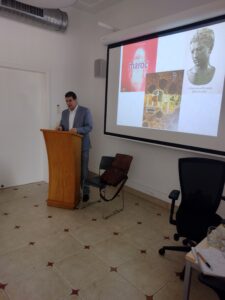
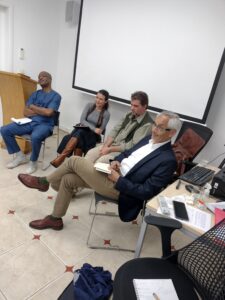
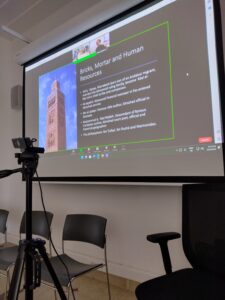
Day 2 focused on identities. Professor Said Mortaji examined how Morocco used its identity (not least the King as its figurehead) as a diplomatic tool while Dr Nadia Khrouz considered how this was contested from ‘unexpected angles’, including the experiences of Moroccan migrants and diasporic communities. The afternoon panel continued this thread by considering how the shifting dynamics of power, especially in Africa, were also recomposing a specifically Moroccan identity. In the evening, Professor Michael Willis’ lecture perfectly captured the region’s protean identity in modern times and examined the implications of this for its past and future relations with Africa and Europe. He acknowledged that the distinctiveness of this process across the different Maghreb’s constituent nations had consequences of its overall political cohesiveness.
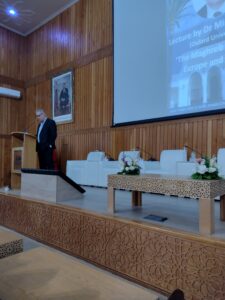
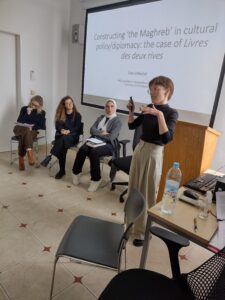
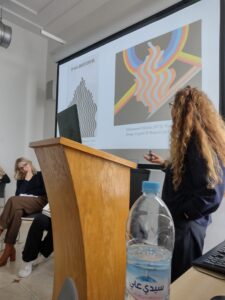
Day 3 returned to this question of mobility but adopted a reflective approach asking whether how we thought about the experience of mobility, its ‘hidden’ technologies and material cultures—from the body to the car, from the oral exchange to the book—might alter how we understood it. At the same time, the empirical realities of motion in the region, the institutions which facilitated and those which restricted (and the relative funding allocated to them respectively) were discussed.
The afternoon session belonged to our students who presented on what they found to be the most pressing issues and how they would like to develop the topic through their own future work. Suggestions raised included a fuller engagement with the nuances between the different perspectives of the Maghreb’s nations and more opportunities to apply contextual understandings to the practical problems facing the region. The event concluded with a debate on how to balance a frank confrontation with the power structures, political and cultural, which shaped Maghreb identity with a deep understanding of the messier tangle of human lives and experiences that also informed it, but in less explicit ways.
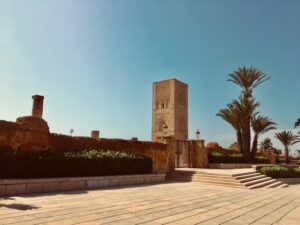
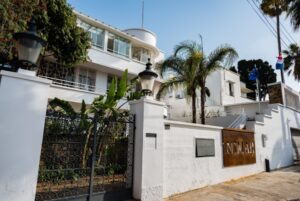
This snapshot does not do justice to all those other discussions that spilled out over coffee, tea, Friday cous cous, or that went long into the night over dinner, and it was here that real value of the event lay. That the Maghreb has meant and will always mean different things to different people with different agendas goes without saying, but the difficult art of bringing these strands together in mutually constructive conversation will be the most important challenge for both the region’s constituent members and their various interlocutors.

